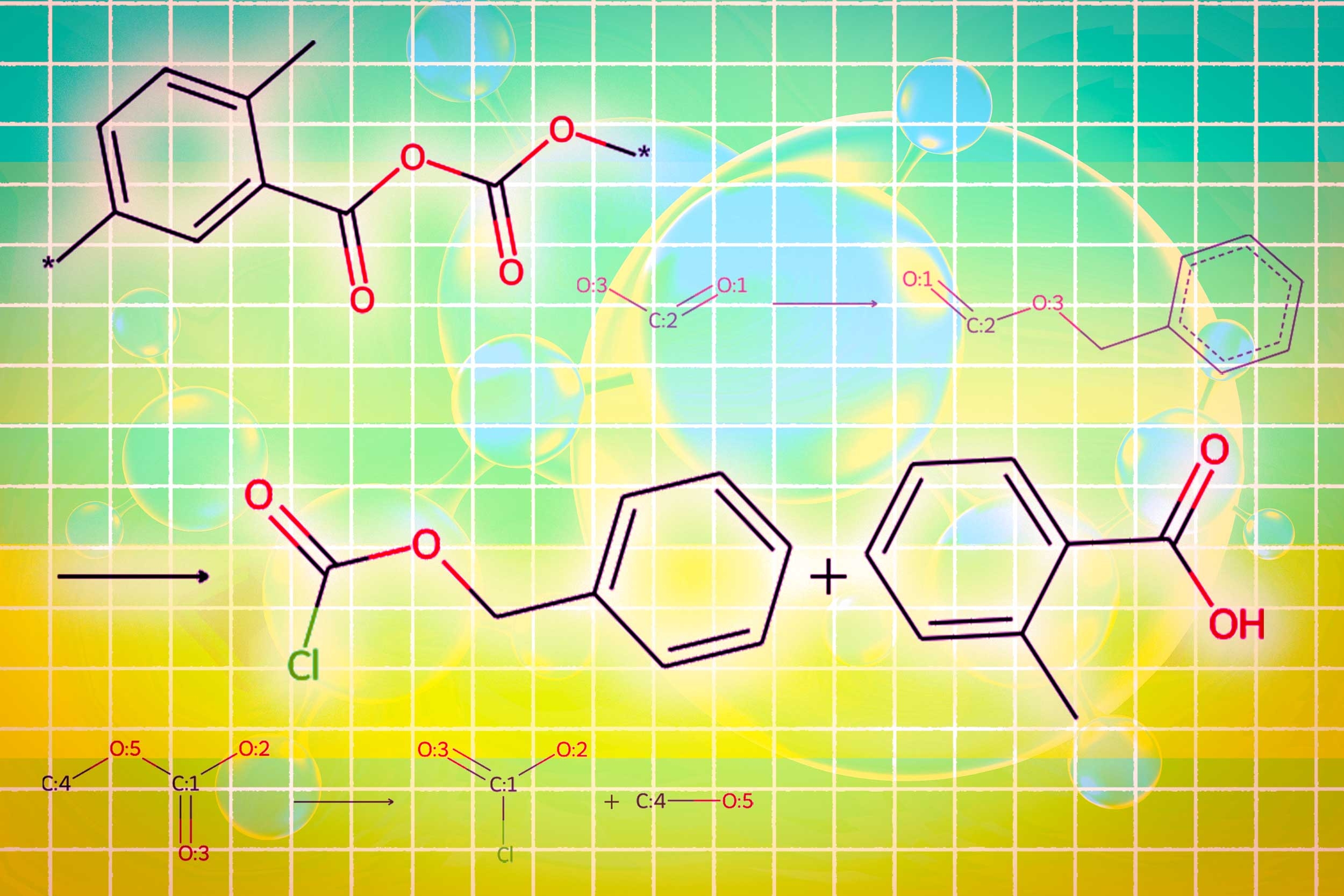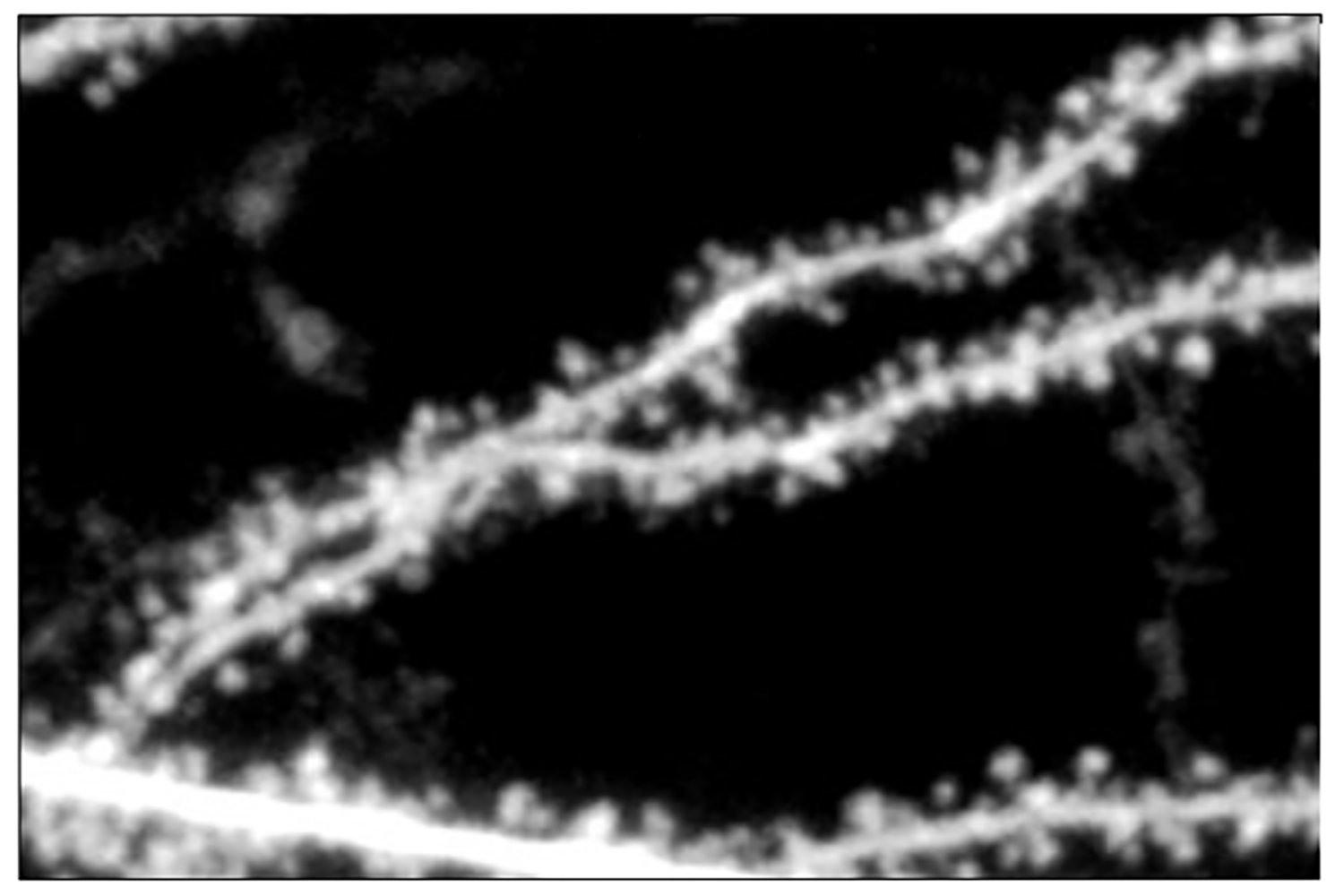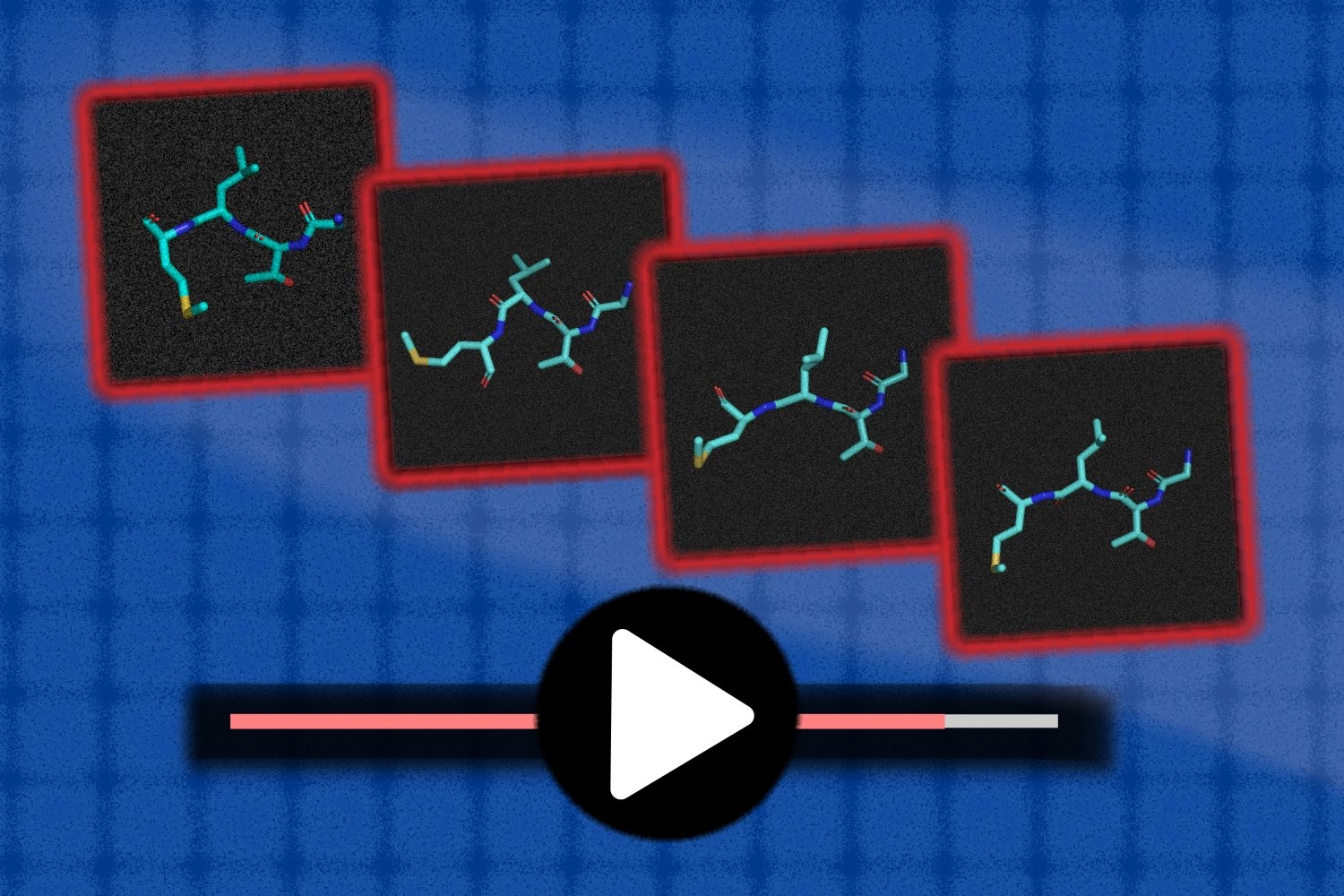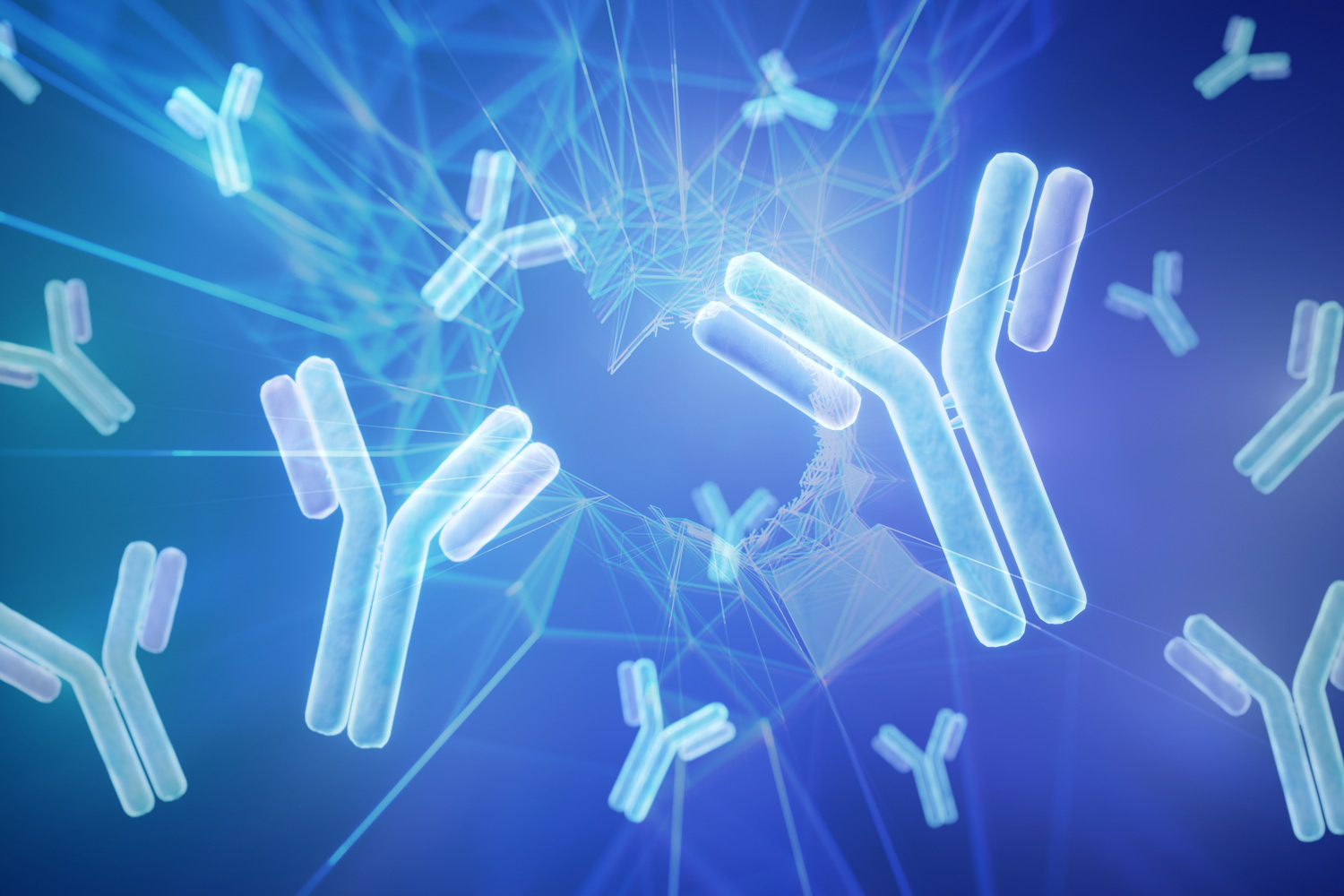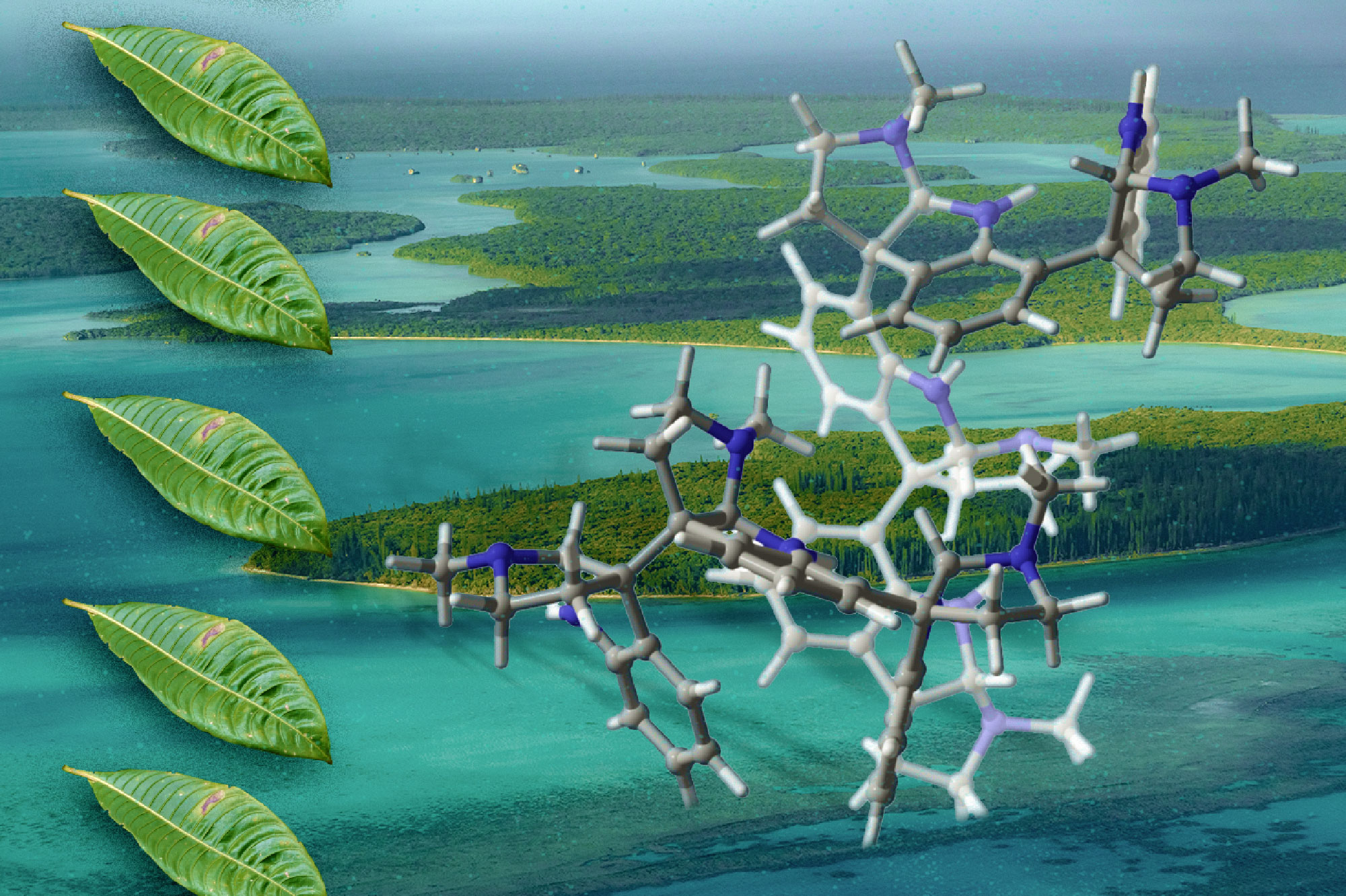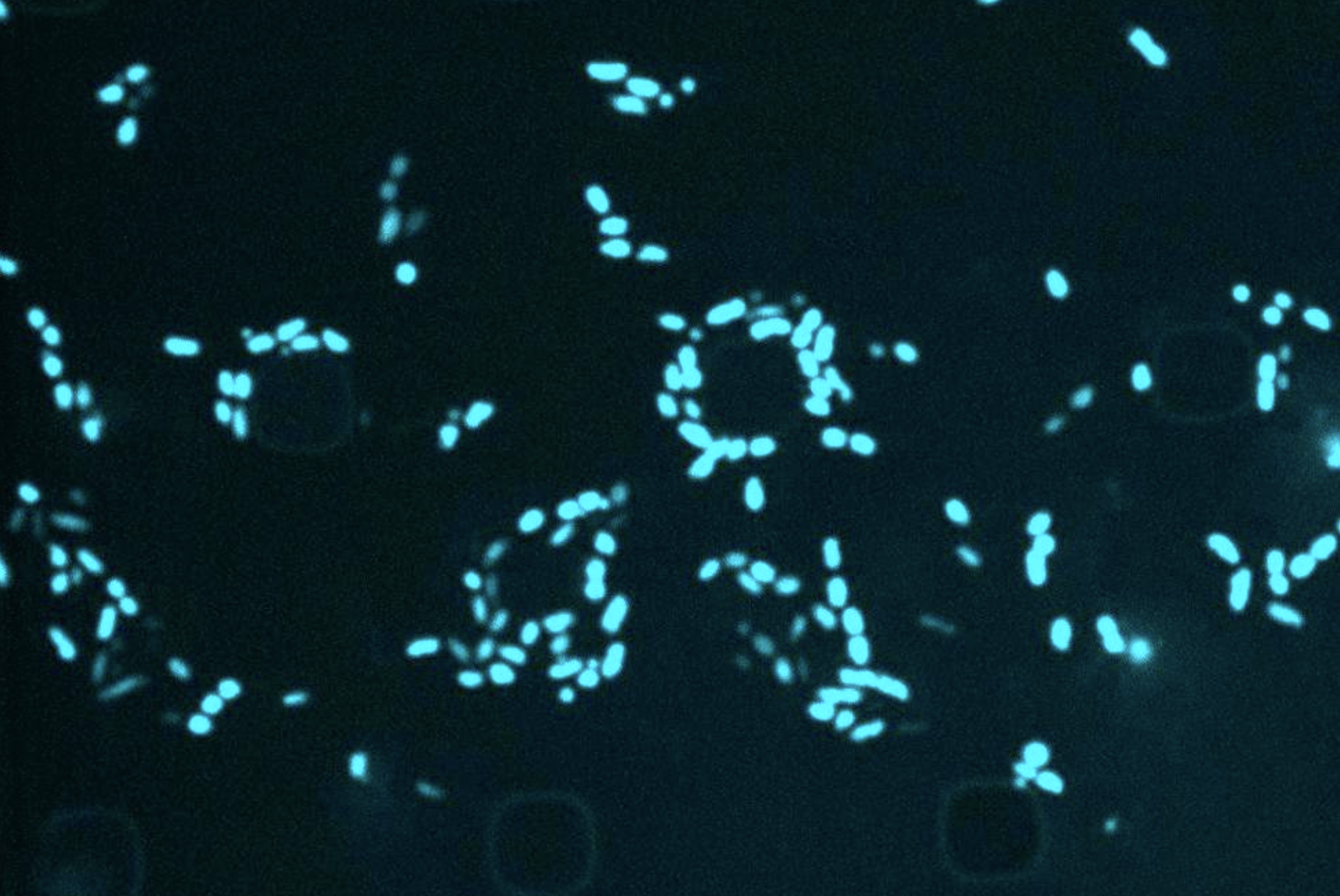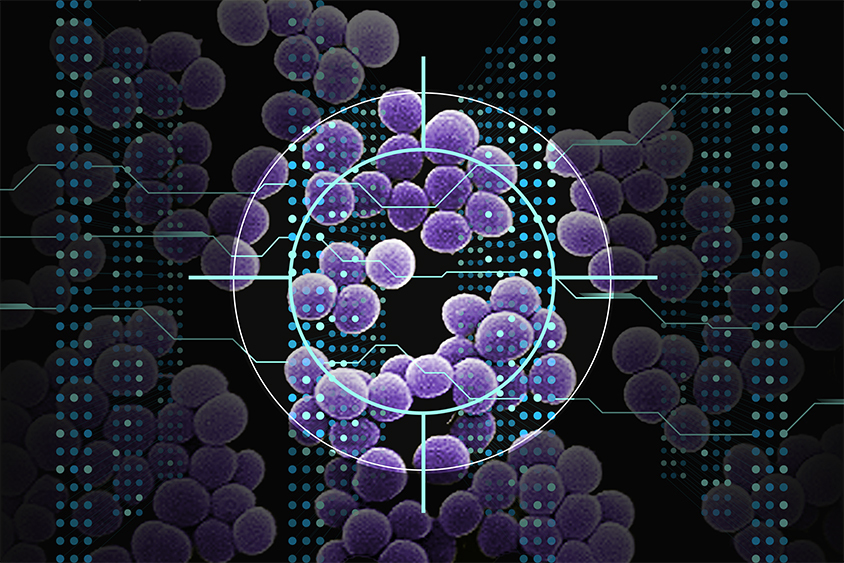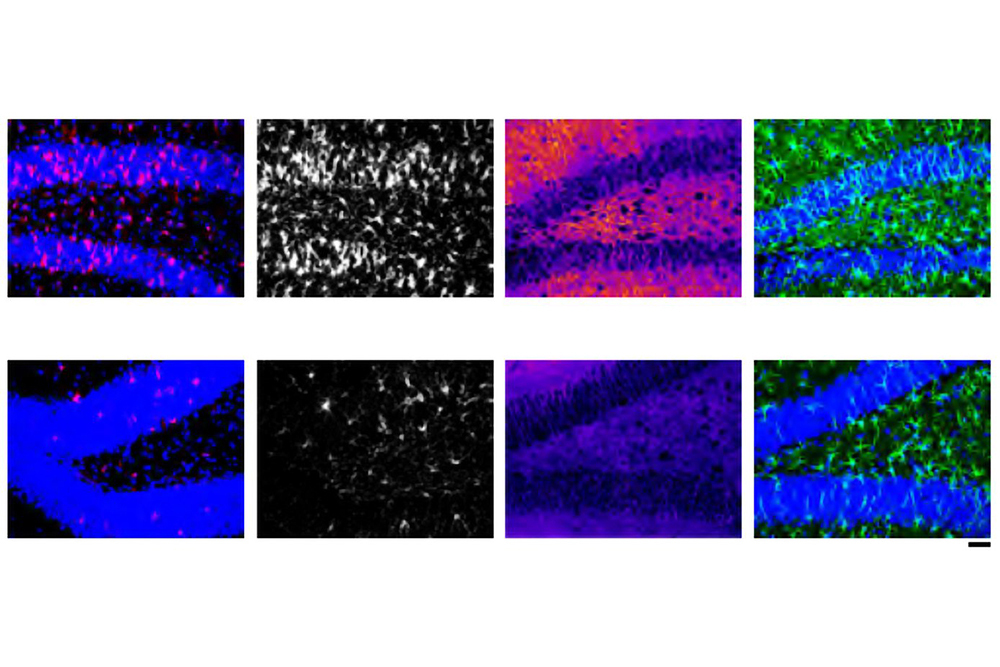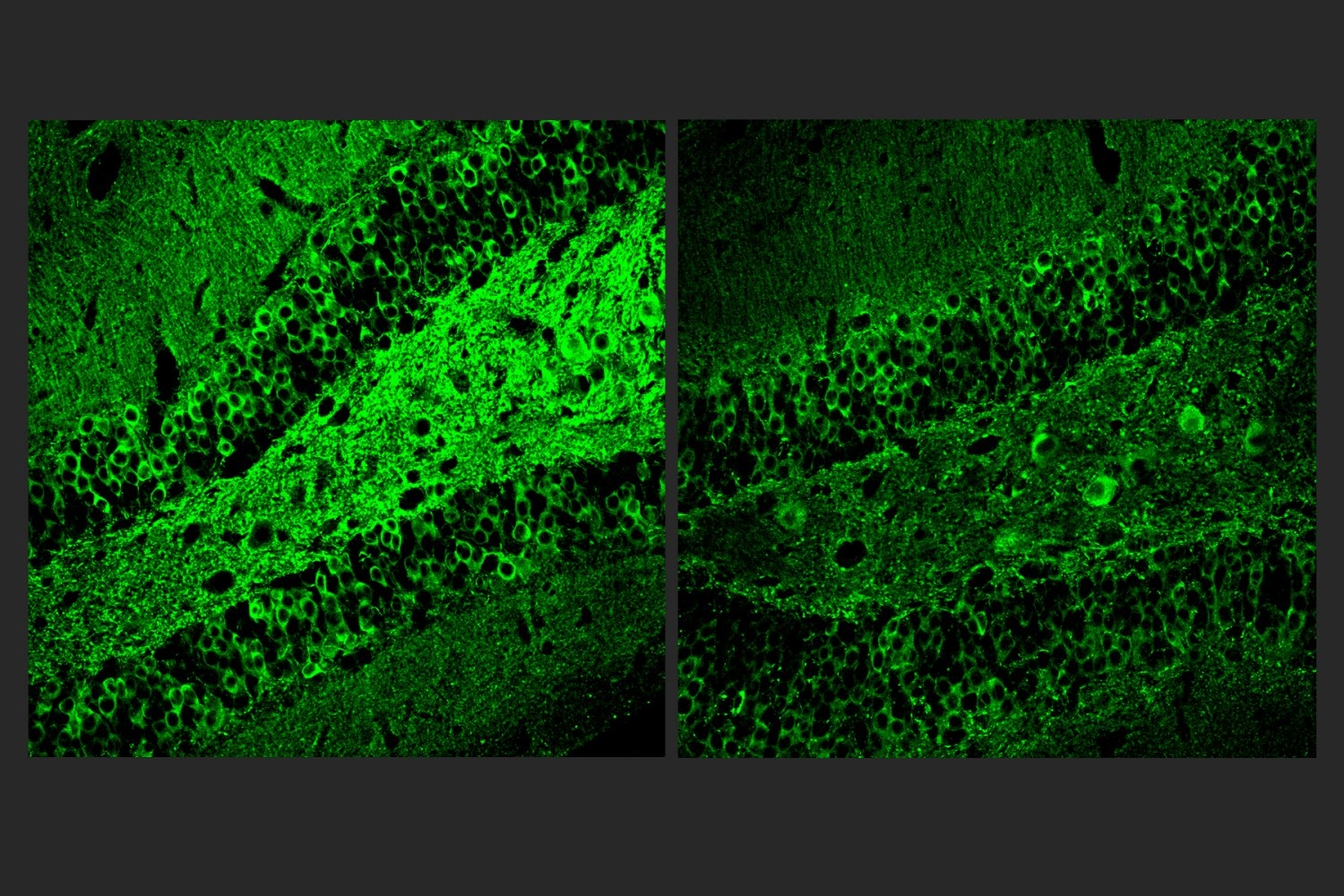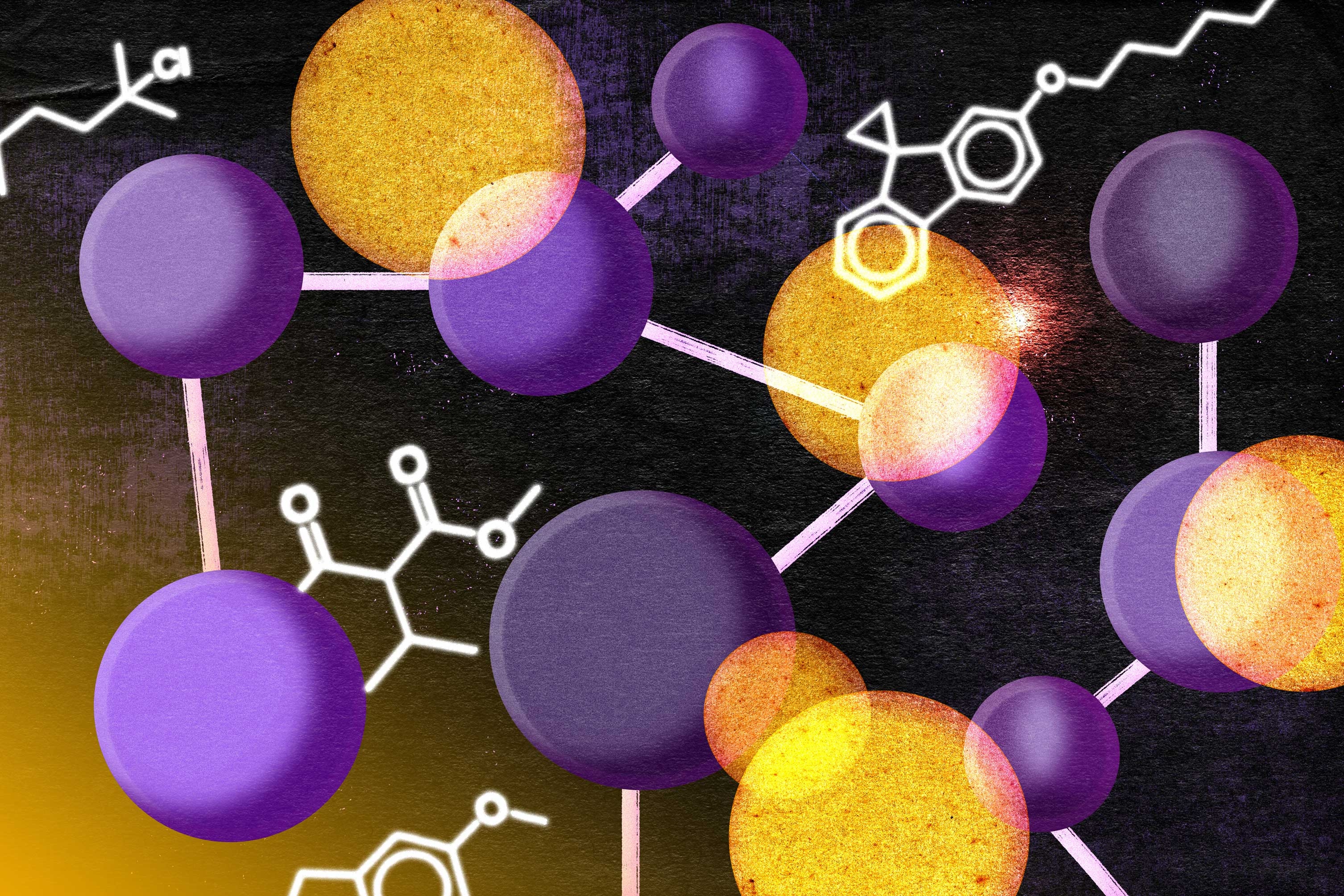Study suggests new molecular strategy for treating fragile X syndrome
Enhancing activity of a specific component of neurons’ “NMDA” receptors normalized protein synthesis, neural activity, and seizure susceptibility in the hippocampus of fragile X lab mice.
March 4, 2025 • ~7 min
Toward video generative models of the molecular world
Starting with a single frame in a simulation, a new system uses generative AI to emulate the dynamics of molecules, connecting static molecular structures and developing blurry pictures into videos.
Jan. 23, 2025 • ~8 min
When an antibiotic fails: MIT scientists are using AI to target “sleeper” bacteria
Most antibiotics target metabolically active bacteria, but with artificial intelligence, researchers can efficiently screen compounds that are lethal to dormant microbes.
April 8, 2024 • ~4 min
Nanoparticle-delivered RNA reduces neuroinflammation in lab tests
MIT researchers find that in mice and human cell cultures, lipid nanoparticles can deliver a potential therapy for inflammation in the brain, a prominent symptom in Alzheimer’s.
Dec. 15, 2023 • ~7 min
Molecule reduces inflammation in Alzheimer’s models
A potential new Alzheimer’s drug represses the harmful inflammatory response of the brain’s immune cells, reducing disease pathology, preserving neurons, and improving cognition in preclinical tests.
Sept. 5, 2023 • ~8 min
/
3

